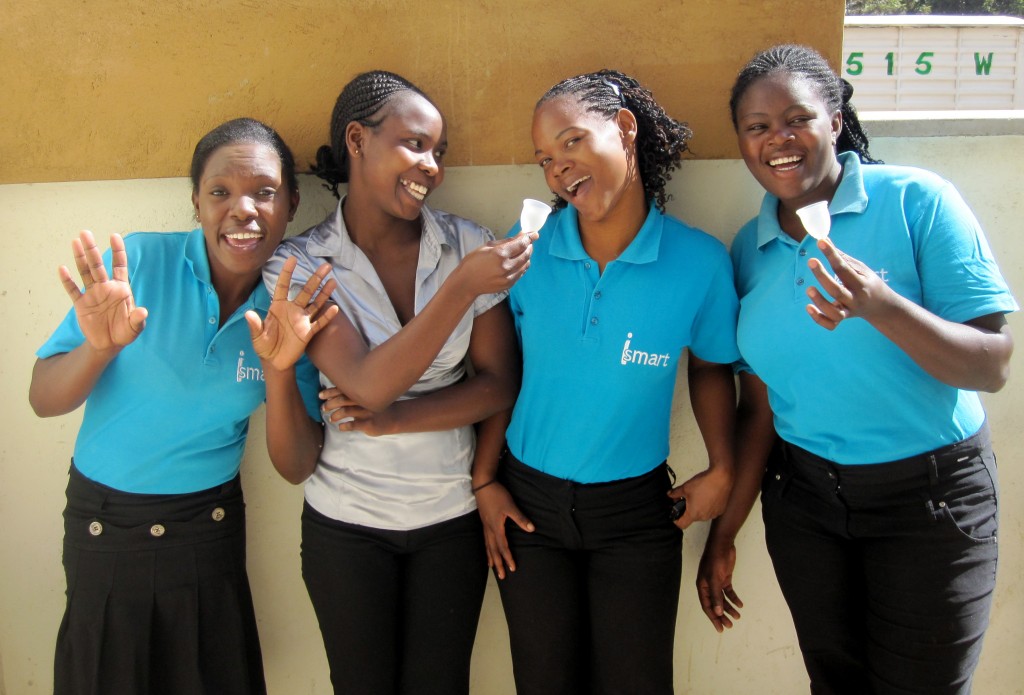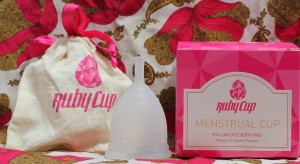Every Kenyan is entitled to better health care as provided for in the constitutions that was promulgated not too long ago. To look at women in general, they go through a biological function and what some would consider monthly periods (menstrual periods). Therefore, the use of sanitary pads is key to ensuring that during this time ones hygiene is maintained. A sanitary pad is an absorbent or otherwise item worn by women when menstruating.
In Kibera slums, due to the extreme poverty levels, there are health related challenges when it comes to female hygiene. Many girls cannot access sanitary pads every month during their periods because they are difficult to afford every month since you can’t use one more than once.
There is an interesting new product for menstrual hygiene in town that is most likely going to overtake normal sanitary pads that are used by girls/women. It is referred to as “Ruby Cup”
Ruby Cup:
Ruby Cup photo above;
Ruby Cup is a healthy, high quality and long-lasting menstrual hygiene product made of 100% FDA (Food and Drug Administration in the U.S.) approved medical grade silicone that can be re-used for up to 10 years. Ruby Cup is designed in Denmark and it is for every girl and woman who wants to treat her body with a superior menstrual hygiene solution.
Ruby Cup is a menstrual cup and menstrual cups have existed in the US and Europe for over 40 years! It is popular, modern, and comfortable, it gives you freedom and a superior lifestyle, it empowers women, it is healthy and it is good for the environment.
Yes, Ruby Cup is in Kenya! But most importantly Kibera slums apart from the fact that it will be sold in the supermarkets. “It is believed that for most of the projects that are rolled out on a large scale, they are always piloted in Kibera” Perhaps this is the reason why Ruby Cup found itself in Kibera! In supermarkets, it will be sold at a higher price while in Kibera it will be affordable and cost less.
Ruby Cup is the only alternative to pads and tampons available in Africa. If you buy one once and take good care of it, you will make a one-time investment and have the product for the next 10 years!
Facts about Ruby Cup:
It seeks to:
i.Provide an affordable and sustainable menstrual hygiene solution to girls and women in East Africa.
ii.Will create job opportunities as sales ladies will be receiving commissions on every ruby cup sold
iii.Has no side effects, non allergenic, non toxic
iv.No leakage and can be worn up to 12 hours
v.Not itchy compared to some of the sanitary pads
vi.Environmentally friendly which means no more garbage and waste of pads and tampons in your neighbourhood
How it is used:
Insertion:
1. To ensure hygienic use, always wash your hands before inserting Ruby Cup.
2. Fold the cup as shown in the picture. Alternatively, pinch down one wall into the base so the cup forms a triangle shape.
3. Push Ruby Cup gently inside and place it in the vagina.
Removal:
1. To ensure hygienic use, always wash your hands before removing Ruby Cup.
2. Grab the stem and use your stomach muscles to push Ruby Cup downwards until you can reach the base of the cup with your fingers. Please note that merely pulling the stem does not remove Ruby Cup, but it helps you to grab the walls. Press the walls of the cup inwards in order to release the vacuum or suction. Then you can gently take the cup out and empty it.
3. Ruby Cup should be emptied every 4 to 12 hours, depending on your menstrual flow.
Cleaning:
To disinfect Ruby Cup, boil it once a month for 5 minutes, either directly after or before your next period.
Important to note:
- The cup should be used only for menstruation
- It is not a preservative and must not be used as such
- The cup is yours only – don’t share it with anybody else!
- Remember to wash your hands before inserting or emptying the cup
- Boil Ruby Cup for 5 minutes between your period in ordert o disinfect it
The product is sold in Kibera through Ruby Sales Ladies, currently based at Mchanganyiko hall, Karanja Road in Kibera slums.
“Now I don’t have to worry when I am in my periods, I don’t have to worry about sitting down during long meetings because I have my cup” one of the women who bought the product after a sales lady had explained to her how it works.
In conclusion, Ruby Cup benefits women, students will be able to attend school without fear whatsoever and it follows therefore that Kenya as a country is likely to achieve Education for All (EFA) Goals, Gender Parity by 2015 and the Millennium Development Goals (MDGs) if the product is embraced on a national scale.
How Ruby Cup is Packaged;



